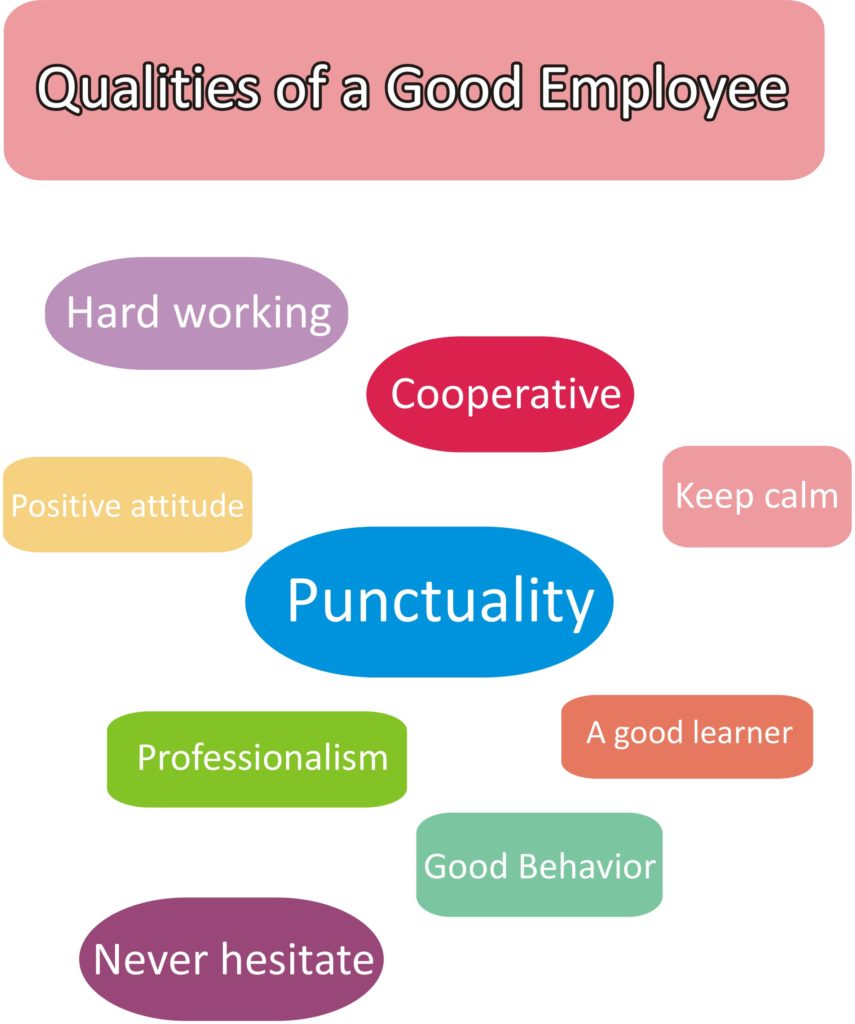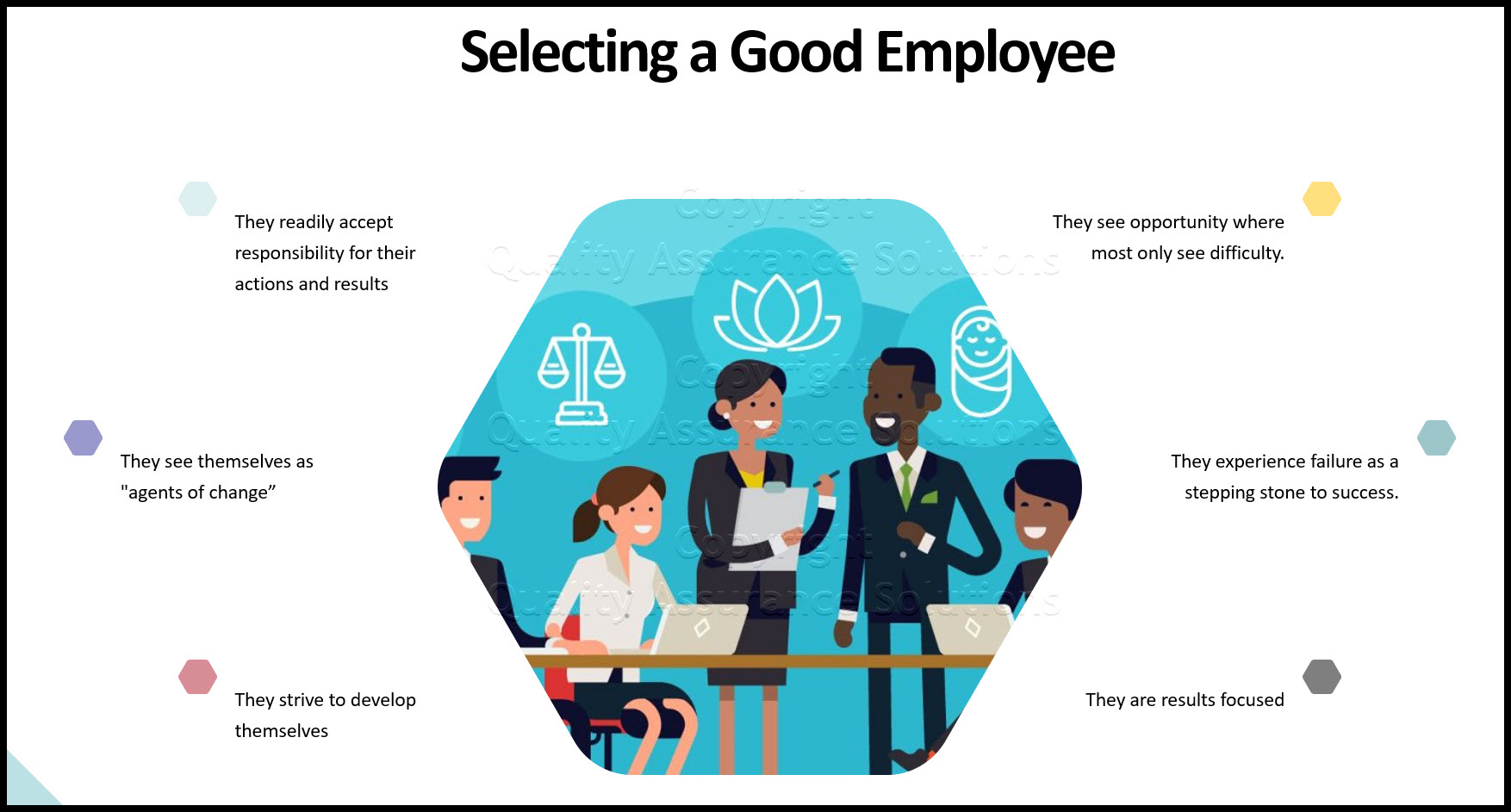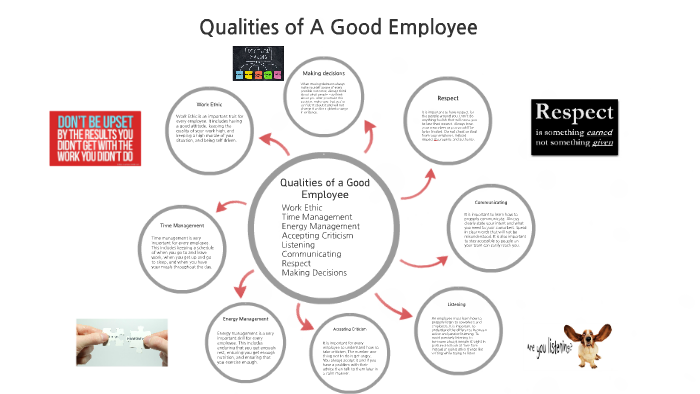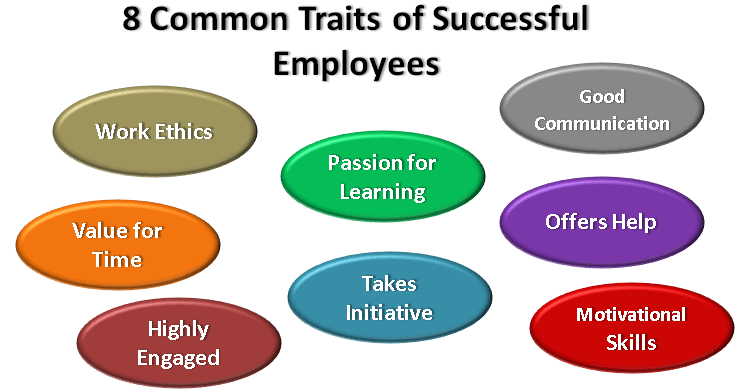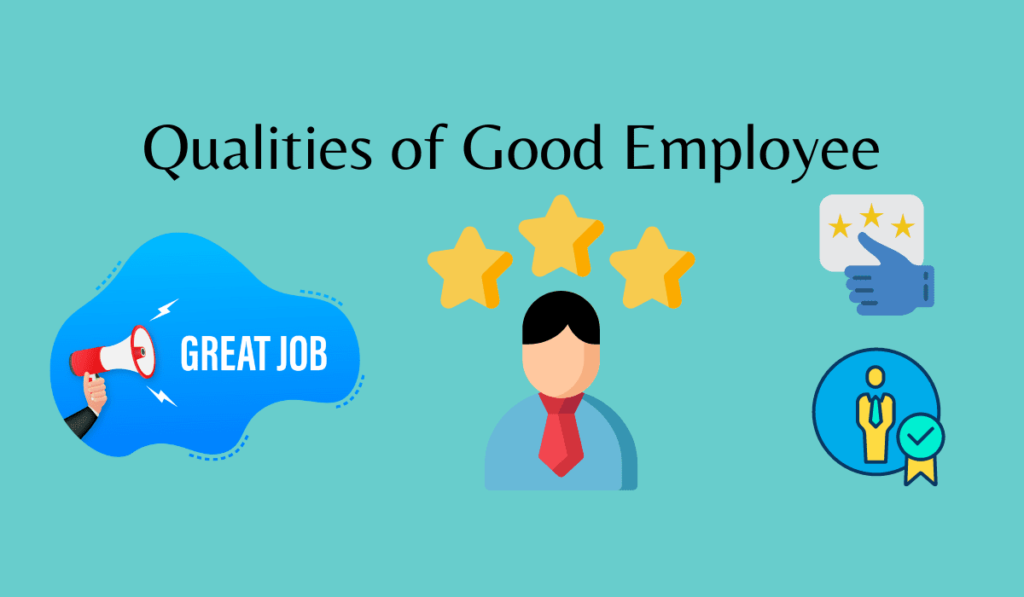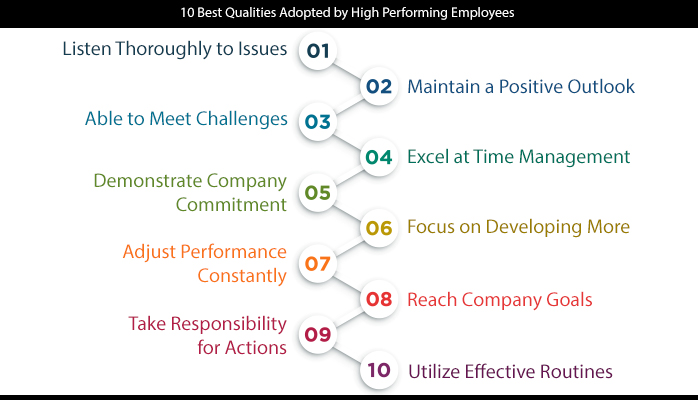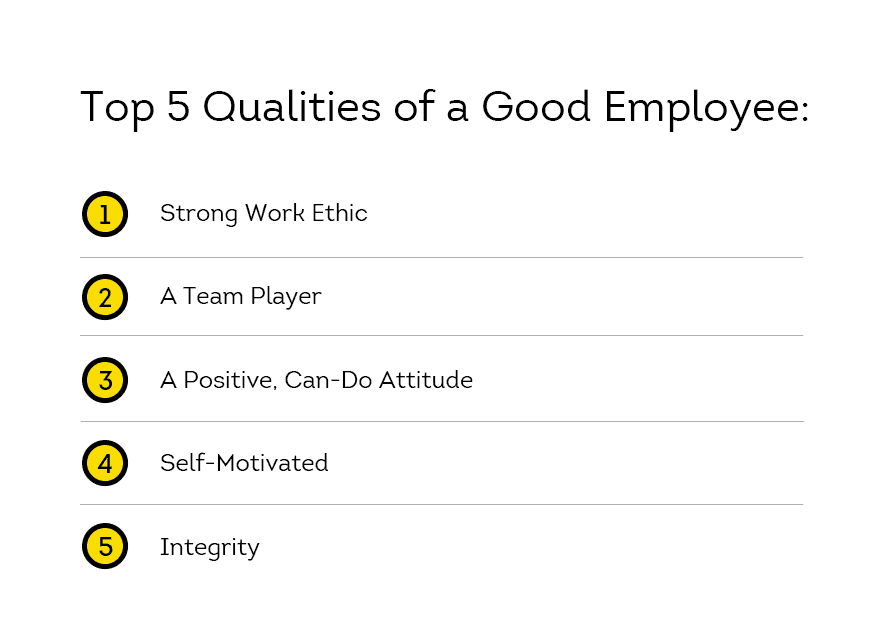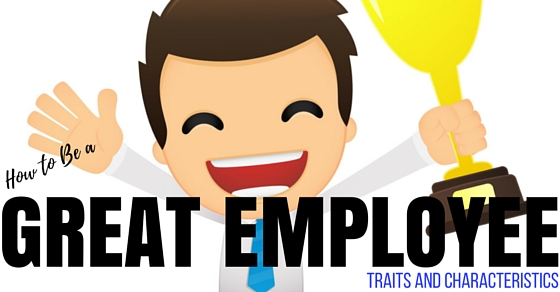Good Characteristics Of A Employee

In today's competitive job market, landing a position is only half the battle. Thriving within an organization requires more than just technical skills; it demands a specific set of personal attributes that contribute to a positive and productive work environment. But what are the truly essential characteristics of a good employee, and how can individuals cultivate them to enhance their career prospects?
This article delves into the key qualities that employers value in their workforce. The qualities include adaptability, teamwork, strong work ethic, effective communication, and problem-solving abilities. We will explore the significance of these attributes and provide insights into how they contribute to both individual and organizational success.
Adaptability: Navigating the Ever-Changing Landscape
Adaptability has become an invaluable trait in the modern workplace, characterized by rapid technological advancements and evolving industry trends. Employees who can readily adjust to new situations, technologies, and processes are highly sought after. This ability to learn quickly and embrace change enables companies to remain competitive and innovative.
According to a recent report by Deloitte, organizations that prioritize adaptability are more likely to experience growth and profitability. Furthermore, adaptable employees demonstrate resilience and a willingness to step outside their comfort zones, fostering a culture of continuous improvement.
Teamwork: Collaboration for Collective Success
The ability to collaborate effectively with others is crucial for achieving shared goals in any organization. Teamwork involves open communication, mutual respect, and a willingness to contribute to a common objective. Successful teams leverage the diverse skills and perspectives of their members to generate innovative solutions and overcome challenges.
A study by Harvard Business Review found that companies with strong team cultures outperform their competitors in terms of employee satisfaction and productivity. When individuals feel valued and supported within a team environment, they are more likely to be engaged and committed to their work.
Work Ethic: The Foundation of Reliability and Productivity
A strong work ethic encompasses diligence, integrity, and a commitment to producing high-quality results. Employers value employees who are reliable, responsible, and dedicated to their work. This includes being punctual, meeting deadlines, and going the extra mile to ensure that tasks are completed effectively.
Gallup polls consistently show a direct correlation between employee engagement and productivity. Employees with a strong work ethic are more likely to be engaged in their work, leading to increased output and improved organizational performance.
Communication: The Key to Clear Understanding
Effective communication is essential for building strong relationships and ensuring clarity in the workplace. This includes both verbal and written communication skills, as well as the ability to actively listen and understand different perspectives. Clear and concise communication minimizes misunderstandings, promotes collaboration, and enhances overall team performance.
According to a survey by the Society for Human Resource Management (SHRM), poor communication is a leading cause of workplace conflict and decreased productivity. Organizations that prioritize communication training and provide platforms for open dialogue are more likely to foster a positive and productive work environment.
Problem-Solving: Addressing Challenges with Ingenuity
The ability to identify, analyze, and solve problems is a critical skill for employees at all levels. Problem-solving involves critical thinking, creativity, and a willingness to explore different solutions. Employers value employees who can take initiative and find effective ways to address challenges, contributing to the organization's overall success.
McKinsey & Company reports highlight that companies that prioritize problem-solving skills are better equipped to adapt to changing market conditions and capitalize on new opportunities. By empowering employees to take ownership of problems and develop innovative solutions, organizations can foster a culture of continuous improvement and resilience.
Beyond the Basics: Cultivating a Growth Mindset
While the aforementioned characteristics are essential, a growth mindset is equally important for long-term success. A growth mindset is the belief that abilities and intelligence can be developed through dedication and hard work. Employees with a growth mindset are more likely to embrace challenges, learn from mistakes, and continuously strive for improvement.
Carol Dweck's research on growth mindset has shown that individuals with this mindset are more resilient and more likely to achieve their goals. Organizations that foster a culture of learning and development can cultivate a growth mindset among their employees, leading to increased innovation and overall success.
Conclusion: Investing in Human Capital
In conclusion, while technical skills are important, the personal characteristics of an employee often determine their long-term success and contribution to the organization. Adaptability, teamwork, strong work ethic, effective communication, and problem-solving abilities are essential qualities that employers value. By cultivating these attributes, individuals can enhance their career prospects and contribute to a thriving workplace.
Ultimately, investing in the development of these characteristics is not only beneficial for individual employees but also for the overall success and sustainability of the organization. By prioritizing these qualities, companies can create a workforce that is resilient, innovative, and well-equipped to navigate the challenges of the modern business world.

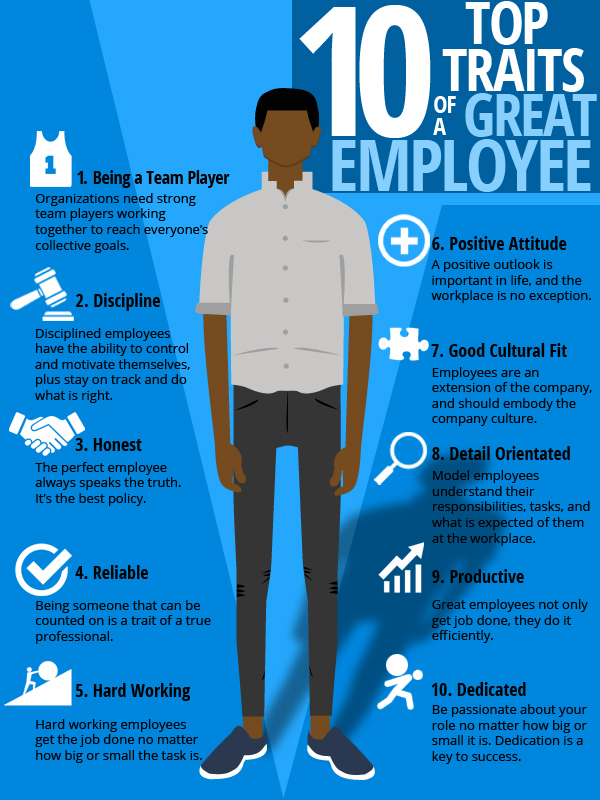
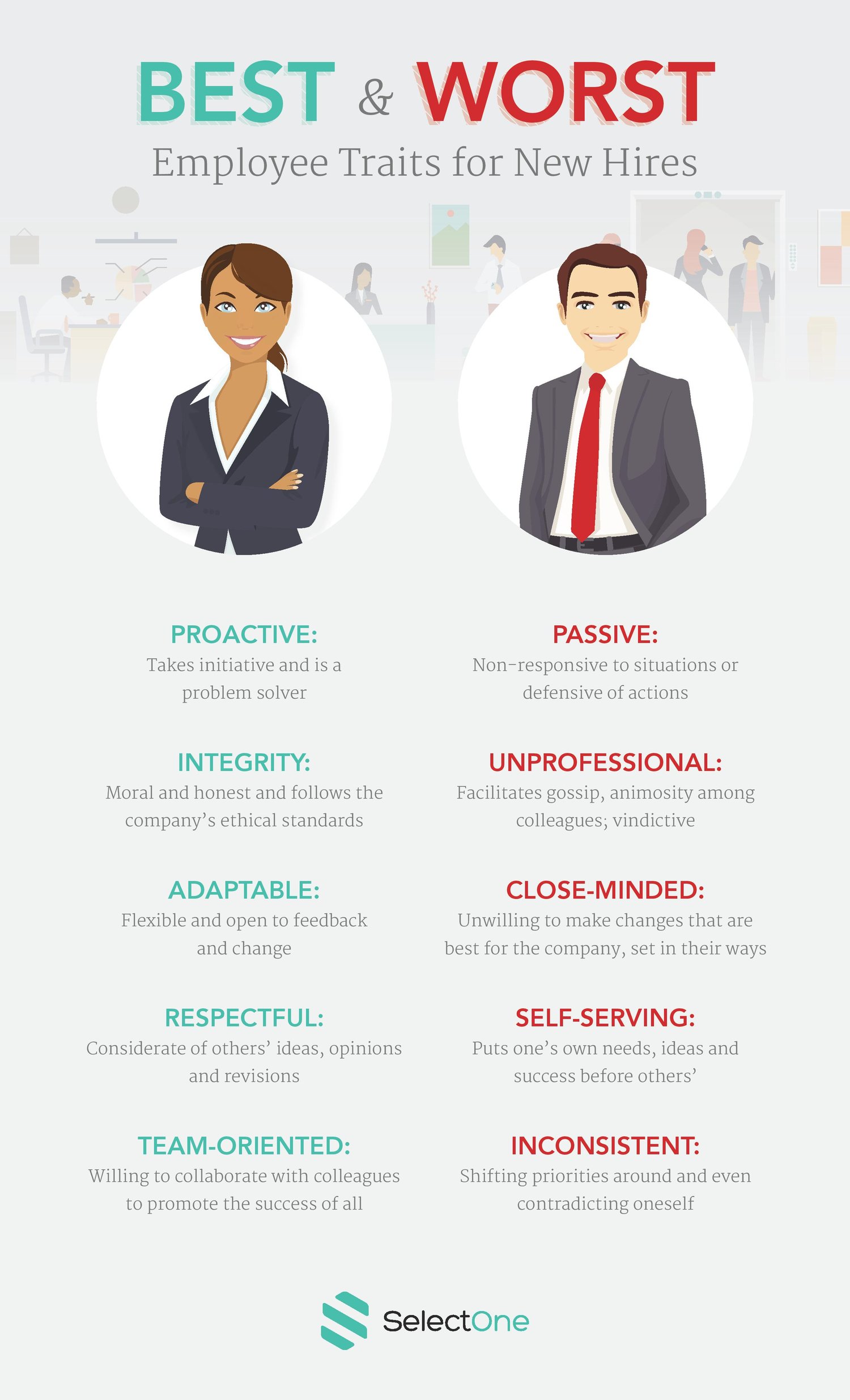

![Good Characteristics Of A Employee Top 10 Traits Of The Most Talented Employees [Infographic] | Good](https://i.pinimg.com/474x/a4/0e/cb/a40ecbbfa24dd3c4053538d19b05fade--top-ten-career-development.jpg)

